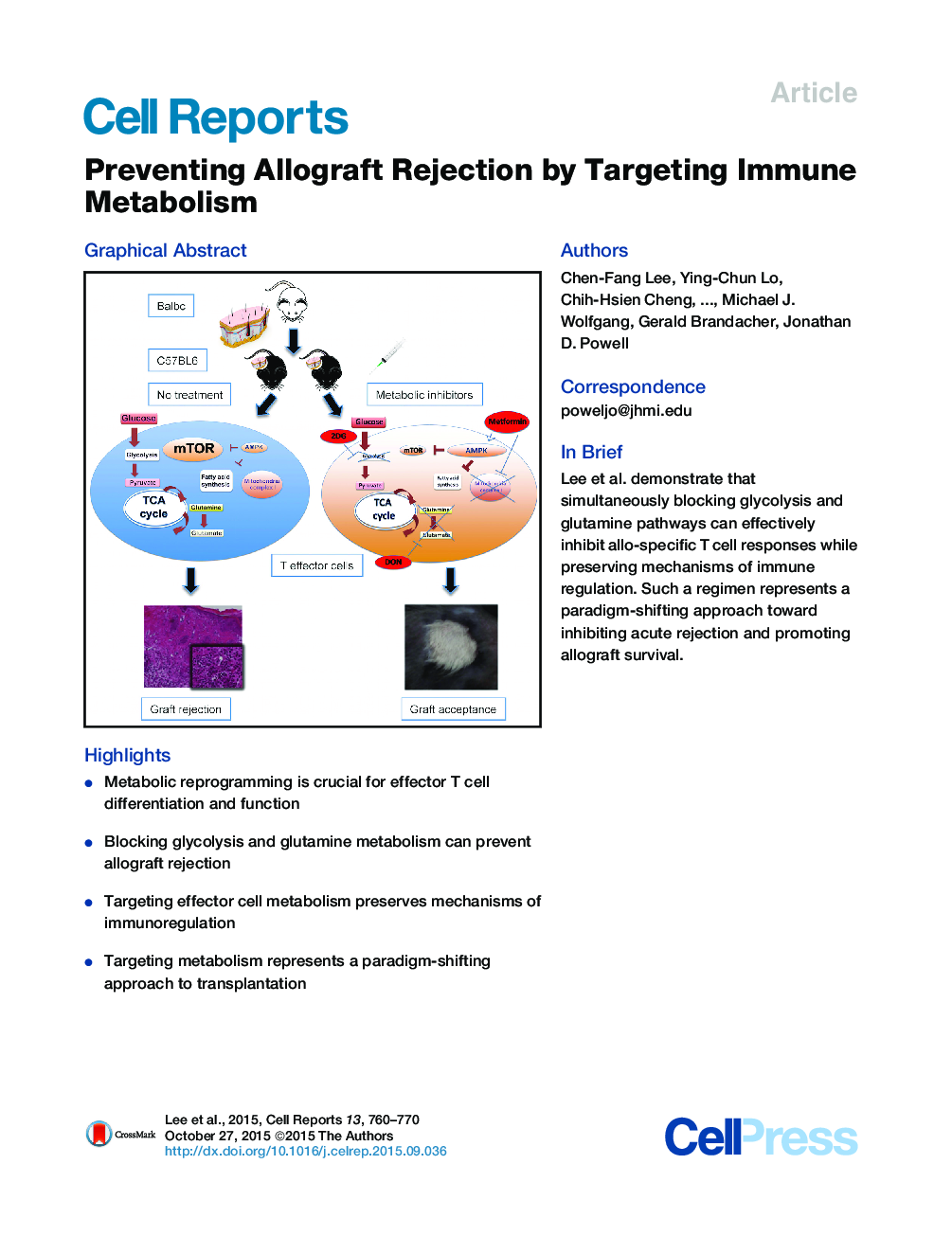| Article ID | Journal | Published Year | Pages | File Type |
|---|---|---|---|---|
| 2039396 | Cell Reports | 2015 | 11 Pages |
•Metabolic reprogramming is crucial for effector T cell differentiation and function•Blocking glycolysis and glutamine metabolism can prevent allograft rejection•Targeting effector cell metabolism preserves mechanisms of immunoregulation•Targeting metabolism represents a paradigm-shifting approach to transplantation
SummaryUpon antigen recognition and co-stimulation, T lymphocytes upregulate the metabolic machinery necessary to proliferate and sustain effector function. This metabolic reprogramming in T cells regulates T cell activation and differentiation but is not just a consequence of antigen recognition. Although such metabolic reprogramming promotes the differentiation and function of T effector cells, the differentiation of regulatory T cells employs different metabolic reprogramming. Therefore, we hypothesized that inhibition of glycolysis and glutamine metabolism might prevent graft rejection by inhibiting effector generation and function and promoting regulatory T cell generation. We devised an anti-rejection regimen involving the glycolytic inhibitor 2-deoxyglucose (2-DG), the anti-type II diabetes drug metformin, and the inhibitor of glutamine metabolism 6-diazo-5-oxo-L-norleucine (DON). Using this triple-drug regimen, we were able to prevent or delay graft rejection in fully mismatched skin and heart allograft transplantation models.
Graphical AbstractFigure optionsDownload full-size imageDownload as PowerPoint slide
